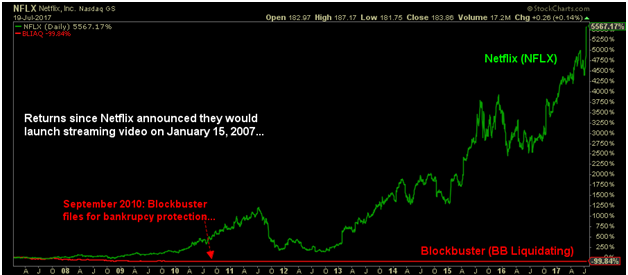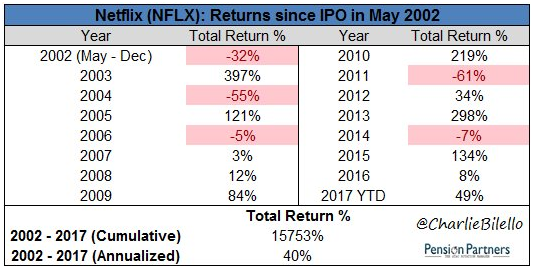
Back in January 2007, Netflix announced a bold plan to bring internet video to television sets. At the time, few believed they would be successful, but such skepticism was nothing new.
The “death” of Netflix was predicted first in late 2002, not long after its IPO. Wal-Mart was entering the DVD-by-mail business, and who could ever compete with the all-powerful Wal-Mart? In 2006, it’s “death” was again predicted, when both Apple and Amazon announced plans to start movie-downloading services. Surely Netflix could not survive such a threat.
But survive they did, only to find new doubters after announcing their plans for streaming video. Netflix shares had dropped 12% by mid-January of 2007 and analyst downgrades ensued. The streaming video service would cost Netflix an estimated $40 million in 2007, and such a hefty sum was deemed “too much. “
“There’s clearly a strong demand for watching movies,” said Brian Pitz, an analyst with Banc of America Securities. “But the company’s earnings are going to be more negatively impacted,” said Mr. Pitz, who has a sell recommendation on Netflix shares.
At the time, Netflix’s biggest threat was said to come from (don’t laugh) Blockbuster. Blockbuster’s online rental service was “taking off,” adding over 700,000 subscribers in the prior 2 months.
Blockbuster’s CEO had this to say about their closest competitor: “We have everything that Netflix has, plus the immediate gratification of never having to wait for a movie.”
What happened next?


















